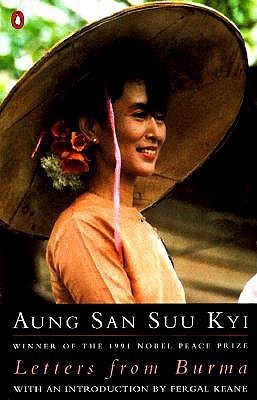What do you think?
Rate this book


209 pages, Paperback
First published January 1, 1995
"When bathing in the rain was no longer one of the great pleasures of my existence, I knew I had left my childhood behind me."
"From where does man's passion for recording people and events spring? Did cave dwellers paint hunting scenes to pass an idle hour or was it fulfilment of an unconscious need to immortalize their deeds for posterity? "
"In Burma, one should approach the telephone with a prayer on the lips and determination to try, try and try again."
"To observe businessmen who come to Burma with the intention of enriching themselves is somewhat like watching passers-by in an orchard roughly stripping off blossoms for their fragile beauty, blind to the ugliness of despoiled branches, oblivious of the
fact that by their action they are imperilling future fruitfulness and committing an injustice against the rightful owners of the trees."
"To view the opposition as dangerous is to misunderstand the basic concepts of democracy. To oppress the opposition is to assault the very foundation of democracy."